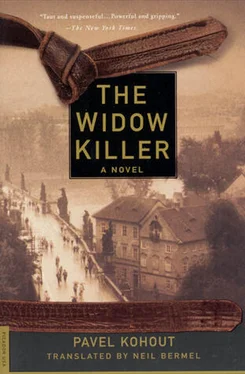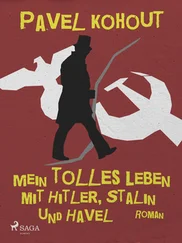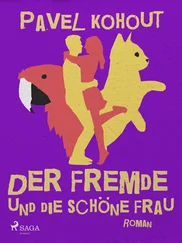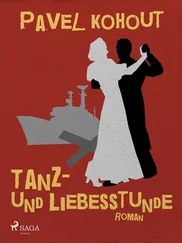Once again he longed for her. So instead he stood up.
“Agreed.”
“What is it, love?” She panicked. “Are you going already?”
“I don’t want to, but I have to ”
She did not make it harder for him.
“I know,” she said, and he could hear the fear through her courage. “Just tell me you’ll come again tonight. You will, won’t you?”
He did not believe he could manage it again today.
“I’ll try, but—”
“Try, no buts! Keep the key.”
“Yes….”
“Maybe you’ll even take me with you.”
“Maybe… oh! I have something for you.”
He pulled out the small pistol and was amazed to see how eagerly she reached for it, and how skillfully she checked that it was loaded.
“It’s perfect! Thanks.”
“I had no idea you were so attracted to guns.”
She stopped.
“So why did you….?”
He repeated Meckerle’s words to her.
She gave a husky laugh.
“You see, I want to have my life in my own hands, love. I’m glad your male vanity didn’t stop you from giving it to me. But you don’t have to worry. I won’t be afraid anymore; if anyone tries to hurt me, I can just as quickly and easily turn him into dust.”
The needle hunt in a haystack — there was no better term for it— went more sucessfully than Morava expected. The Czech police vehicle crossed the barricades without incident; at each point they tarried just long enough to find the person in command, usually a former officer, sometimes a colleague, and more and more often ordinary citizens determined to protect Prague even at the cost of their own lives. They would pass out two or three pictures with a caption, warn the recipients to be extremely cautious, and move on one block further.
On a city map, Morava marked barriers and their apparent permeability. He and Litera worked outward from the radio building, combing nearby areas in the hope that the murder squad had found the city center congenial; later it occurred to Morava that they would probably have headed for the Czech-German flashpoints, where they could continue their hunt. The first batch of photographs was running out and the second would be ready that afternoon. As Litera drove, he groped along the shelf under the wheel in the hopes of finding a cigarette butt. A key skittered off the shelf and onto the floor; Morava picked it up.
It belonged to Jitka; the last time she had used it was to open the door for her murderer, and it fell out of her skirt pocket on the way to the hospital. Litera had found it, put it away, and forgotten about it. Now Morava had this cold piece of metal in his palm, and the memory of their time together flooded back into his heart, when all he had to do was unlock the door to step out of the world of murderers (uniformed and otherwise) and into the small but boundless world of their love.
How can it be, he despaired again, that she’s gone and her killer is still alive?
Then Morava caught Litera’s sympathetic glance and turned to steel again. He would force himself through the door he had avoided ever since that day, and rid himself of that final weakness. His driver understood and agreed when Morava suggested they take Buback’s thin German woman something fresh to eat; if the detective happened to be with her, they’d bring him back down with them. In the police canteen they gave Morava an enamel milk can filled with potato soup along with a quarter-loaf of bread. As usual they drove along the bank of the Vltava to the last tram stop, where they snaked up the hill on a narrow, wooded road. At the second bend some SS men unexpectedly stopped them.
“Hände hoch!” an angular sergeant bellowed at them. “Hands up! Out of the car!”
Their police uniforms had no effect this time; they were dragged rudely out of the vehicle, disarmed, and shoved onto the sidewalk: Morava tried to negotiate with them.
“We work for the criminal police, which is cooperating with the Prague Gestapo on—”
“Halt Maul! Shut up!”
The petty officer ignored them; he was completely absorbed in directing his men. Small groups of SS were bashing their rifle butts against the doors of the low houses.
The whole time he had lived in this corner of Prague with Jitka, Morava had rarely seen other people, only the occasional old ladies shuffling arduously out for a walk or to the store. Now for the first time all the inhabitants appeared on the street; it was a sorry sight, as if they were emptying out the old-age home and the poorhouse. An exception were the two youths they led out of the nearest house and put with the policemen. No one was paying attention to the foursome with raised hands at that moment; the SS troops were surveying their catch, driving the especially unsteady ones back into their houses.
“Who are you?” Morava whispered.
“Students. We ran from the Totaleinsatz, the work deployment. What do they want with us?”
“I don’t know.”
“We could run again,” suggested the other, a vigorous blue-eyed blond with a handsome face. “They’re not watching!”
He set off, bounding with long strides down toward the curve in the road. The sergeant turned almost casually and pressed the trigger of his automatic rifle. They could see the shots slam into the student’s body, which kept running for several more seconds before starting to fall; even on the ground its legs jerked in a left, right rhythm. The horrible movement stopped only when the SS man walked slowly over to the dying boy and mercifully gave him one more shot… mercifully! Morava trembled. What a mockery of the word…
“Amen….” a pale Litera breathed.
The remaining student was about to faint. His arms began to fall.
“Keep them up!” Morava hissed at him.
The ease of that killing was a warning: These Germans were past caring. Then the shooter approached, looked at their hands and asked with what almost seemed like concern, “Does it hurt?”
Morava expected further savagery, but instead heard a piece of almost friendly advice.
“Put them behind your head, then!”
He remembered his dream. Even this death machine looked like a person and could probably act like one as well. How could he recognize him — or any of them — if they managed to escape, put aside their uniforms and become what they had been before? He had spent three months tracking a single murderer, trying to bring him to justice. But what about the thousands upon thousands like him? They murdered people as anonymously as this man here had, and at a moment’s notice they could turn into upstanding teachers, shopkeepers and workers. How could anyone possibly prosecute the senseless death of the handsome, blond, blue-eyed boy? Was it moral to let them withdraw in peace? Were the Communists right this time, and not Beran?
He was still thinking about it when the SS assigned six older men and women to their group and led them away, leaving the dead boy and the police car behind.
Before they reached the top of the rise, they grew by a few more handfuls of Czechs and a heavily armed escort.
There were several dozen of them in the web by the time they reached the rows of modern houses ringing the Pankrác plateau. Across the valley, a stupendous view of the castle opened before them, but their attention was riveted on the drama they had been sucked into. Another SS company was driving younger men and women, some with children, from their houses.
The young Totaleinsatz refugee, still in shock from his friend’s death, kept stumbling. Morava and Litera were practically carrying him.
“We’re hostages, aren’t we?” The boy’s voice trembled.
The arrival of a staff car seemed promising; the lower officers saluted at attention and the remaining men stopped to look. But the pair who got out stripped Morava instantly of all hope. The tall SS officer with a pock-scarred face and the civilian with a skull-like shaven head were remarkably good personifications of a regime which, in its death throes, was baring its true nature again.
Читать дальше












